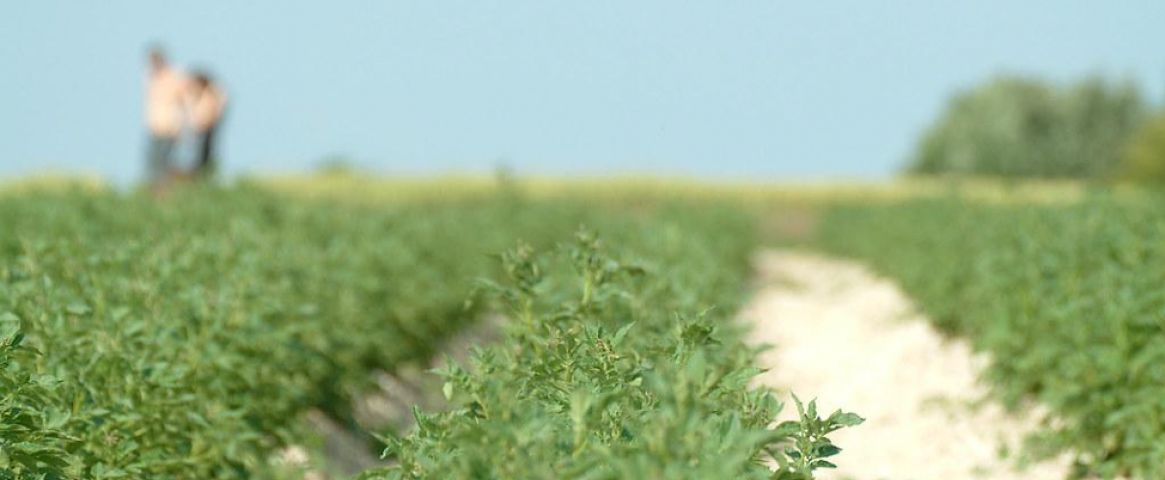By Kyle Chambers

Monoculture, another name for single-crop farming, leads to water loss and the decline of carbon, nutrients and biodiversity in soils, said soil science researcher Raul Zornoza of the Technical University of Cartagena during a Feb. 16 talk at the American Association for the Advancement of Science annual meeting. The practice also leads to high disease rates in cultivated crops, caused by their genetic similarity.
As researchers work to ensure that important crops like wheat and corn can be sustainably taken from farm to fork, Zornoza and colleagues are developing ways to diversify agricultural production. The team posits that initiatives that involve planting multiple crop species may lead to a recovery of soil health and productivity.
Zornoza and colleagues discussed their research that showed how planting a more diverse array of crops can lead to a wide range of benefits. Research efforts in Spanish almond orchards have led to positive developments, Zornoza said. Planting thyme, caper and oats among the almond trees in a process known as alley cropping attracts large numbers of pollinators, reshaping a simplistic landscape into an agriculturally productive community.
In vegetable fields, the team’s research suggests that planting legumes with melons improves soil fertility. Known as intercropping, the two-crop mixture also boosts water retention and soil nutrient content, allowing farmers to use 20 percent less nitrogen fertilizer.
Zornoza’s team focuses on small, non-industrial farmers, and, he said, local producers are enthusiastic about switching from monoculture once they learn about the benefits of crop diversification. But adopting such sustainable agriculture initiatives on a larger scale requires interest from both food producers and consumers.
Barriers to crop diversification initiatives must also be removed, said agronomist Lise Paresys of the French National Institute for Agricultural Research.
Some countries have started to see local producers experiment with crop diversification efforts, Paresys said. According to his research institute, producers of hemp-based products in Sicily, Italy, sell directly to consumers. In Belgium, sheep herders are working with farmers to integrate crops other than grass into their flock’s grazing habits.
But as the benefits of initiatives like intercropping and alley cropping become more widely known, researchers, citizens and politicians will need to stress the importance of sustainable agriculture to convince food producers to make a full transition from monoculture, Paresys said.
Some food production companies are beginning to express interest in crop diversification methods, Zornoza said. For example, his team was approached by the Italian pasta brand Barilla to help improve wheat yields.
However, farming infrastructure in the United States tends to only accommodate monoculture, said cropping system professor Meagan Schipanski of Colorado State University. Grain elevators and silos are often built to hold only one crop, preventing farmers in rural and isolated areas from making the transition.
Despite some challenges, Zornoza and his colleagues said that through a combined effort of consumers, producers and economic forces, crop diversification initiatives could lead agricultural production to a sustainable future.
“It requires a few innovators to go first and then that gets the market going,” Schipanski said. “But it’s going to take some time.”
Kyle Chambers is a senior at the University of Florida majoring in journalism and biology with a minor in French. He is a communications intern in his school’s College of Health and Human Performance and a writing and marketing intern with UF Innovate: Tech Licensing. He is a contributing writer at WUFT News and a lab editor for a professor in the University of Florida College of Medicine. Follow him on Twitter @KyleCha61 or email him at kylechambers61@gmail.com.




